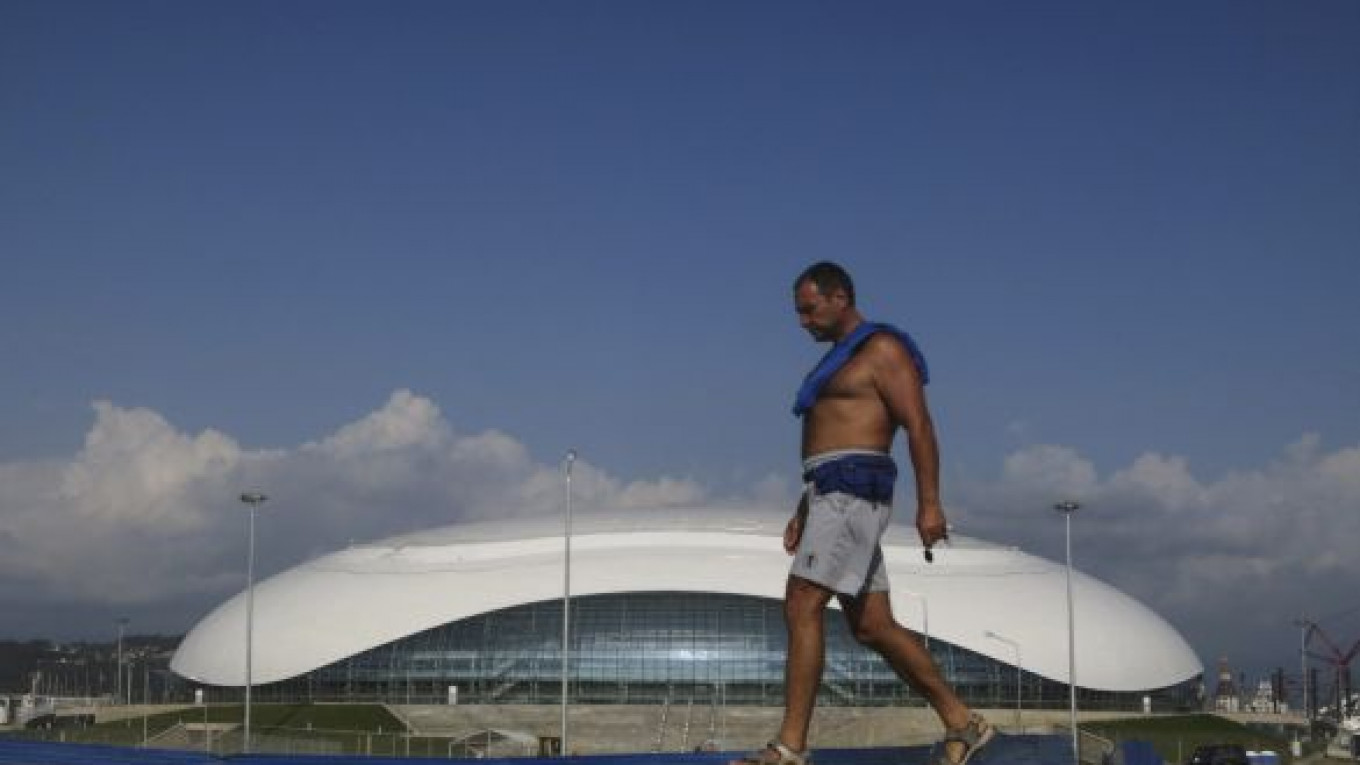SOCHI — Preparations in the Black Sea resort of Sochi are in full swing less than six months before the start of the 2014 Winter Olympics, with the hosts bracing for the torch-lighting ceremony in ancient Olympia, Greece, next month.
Organizers are rushing to complete the venues for the first Winter Games to be held in Russia, a traditional winter sports powerhouse, before the symbolic start of the Games run-up with the torch lighting at the site of the ancient Olympic Games in Greece on Sept. 29.
With Russia in the eye of a media storm over its recently adopted anti-gay propaganda law that has triggered protests across many countries (See related story, Page 5), work at the Fisht Olympic stadium and the other Games venues continues unabated as workers put the finishing touches to the stadiums and shape the surrounding areas.
"The preparations are going well and everybody is working incredibly hard to make sure that we reach all of our targets," Games chief Dmitry Chernyshenko said this week. "We have received brilliant feedback at every stage.
"The test competitions have passed successfully, which was proved by positive feedback."
Organizers tested the Olympic venues during the 2012-13 winter season, with Sochi hosting major events in all 15 winter disciplines. More than 3,000 athletes took part.
The Games are divided into two clusters with the city's Sochi Olympic park and the mountain cluster of biathlon, Alpine skiing and sliding venues some 40 kilometers away.
Sochi will see the Olympic flame land in Russia on Oct. 7 before kicking off what is expected to be the longest torch relay for any Winter Olympics.
The Olympic flame will cover some 65,000 kilometers across Russia and will visit more than 2,900 towns and settlements, carried by more than 14,000 bearers.
The Games will open on Feb. 7 and run to Feb. 23.
A Message from The Moscow Times:
Dear readers,
We are facing unprecedented challenges. Russia's Prosecutor General's Office has designated The Moscow Times as an "undesirable" organization, criminalizing our work and putting our staff at risk of prosecution. This follows our earlier unjust labeling as a "foreign agent."
These actions are direct attempts to silence independent journalism in Russia. The authorities claim our work "discredits the decisions of the Russian leadership." We see things differently: we strive to provide accurate, unbiased reporting on Russia.
We, the journalists of The Moscow Times, refuse to be silenced. But to continue our work, we need your help.
Your support, no matter how small, makes a world of difference. If you can, please support us monthly starting from just $2. It's quick to set up, and every contribution makes a significant impact.
By supporting The Moscow Times, you're defending open, independent journalism in the face of repression. Thank you for standing with us.
Remind me later.






